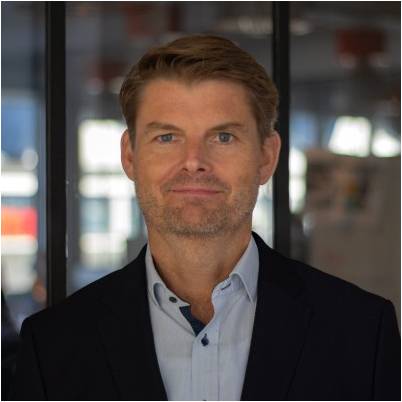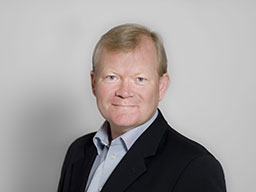A Reminder of Your Power of Choice
Talk to the Elephant
What you will get: How to communicate with emotional impact
“Speak to the elephant!”
Successful people speak to other people’s elephants.
Most people don’t, they just speak to the rider of the elephant!
What am I talking about?
Communicating with the correct part of people’s brains.
You see…
We all have an elephant – which represents the subconscious part of our brain (the limbic system)
And then we all have a rider – which represents the logical, intelligent part of our brain.
And the elephant is bigger and more powerful – so it drives all our behaviours, habits, emotions, beliefs and, ultimately, our levels of success and happiness in life.
The elephant does not understand logic or language – so trying to persuade it to do something with reasoning simply does not work.
So in order to engage the elephant, we need to communicate in pictures, sounds, shapes, smells, stories and metaphors.
So let’s take an example…
I could come into my sales pitch to the management team and explain that we need to increase sales by 21% in the next year. And I can give lots of logical reasons why and even detail the process needed to achieve this.
All very clear – but not very exciting and not engaging the part of the brain that drives behaviour – the elephant.
How about this as an alternative…
“Right now, our sales are fine. They are like a comfortable family car, a light blue Ford Focus, cruising along a pleasant country road. Can you picture this?
Now how about this – a brand new red Ferrari firing its way up a breathtaking mountain – all the way to the top.
And nothing can stop it. And what’s more, the ride to the top is pure pleasure. Enlightening. Fun. Exciting.
Can you picture this?”
So which version grabs you more?
Of course the second one.
Why? Because it speaks to your emotional brain – your elephant.
And sadly…
As I already said, far too many business interactions just focus on rider to rider communication.
It may be clear.
It may be rational.
It may make sense
But it won’t drive behaviour change.
It won’t engage people’s interest.
It won’t inspire to take action.
So is it time you started to speak to people’s elephants more?
And while your at it – how often do you speak to your own elephant to get it motivated?
I’m off to drive a Ferrari up a mountain – how about you?
To your success.

Steve Neale
“Europe’s Leading Expert on Personal and Professional Growth”
Psychologist, Executive Coach, EI Practitioner, Award Winning Trainer, International Author, Psychodynamic Therapist, Hypnotherapist, Mindfulness Instructor, International Speaker, Creator of the LPS, Creator of the Accredited Masters in High Performance Leadership
Prime Time
What you will get: An introduction to the Priming technique
“Prime Time!”
We’ve all been there.
Another team problem meeting where we need to create some good ideas or solve a challenge.
Or perhaps you’re sat alone trying to come up with that one amazing idea that will change the world and your life.
Problem is….
We don’t have a creativity button we can just switch on and then the ideas just come flooding out.
And what’s worse…
The more we try to force ourselves to think of amazing new ideas, the harder it is to think of them.
That’s where Priming can help you.
You see…
Those truly amazing ideas don’t come from our rational brain – they come from the subconscious part of the brain (the limbic system).
And evidence from numerous neuroscience studies shows that Priming is a proven technique that helps your subconscious gear itself up for that WOW idea and be more creative.
So here’s how it works…
Before you start trying to generate the ideas, you need to “prime” yourself to be ready.
That means…
Deliberately focusing your mind on certain things before you start generating ideas.
So ask yourself…
What would a famous person do in this situation? Say a pop star or actor or politician or comedian?
Then think of a person who has already succeeded in a similar situation…
What did they do?
What didn’t they do?
How did they do it?
You can also prime yourself by reading that person’s books, watching them on You Tube or just observing them.
And don’t be afraid to be a little wacky.
So ask questions like…
What would Winnie-the-Pooh do in this situation?
If Madonna wrote a song that gave the solution to this challenge, what would the lyrics be?
If Bruce Willis was gonna bust his way out of this challenge, how would he do it?
How would a nurse/fireman/skater/ballet dancer/mountain explorer/ventriloquist approach this?
Studies consistently show that people who use priming before looking for solutions create more and better ideas than those who don’t.
So why not give it a try?
I’m off to figure out how Spiderman and Tigger would create a marketing plan.
How about you?
To your success.

Steve Neale
“Europe’s Leading Expert on Personal and Professional Growth”
Psychologist, Executive Coach, EI Practitioner, Award Winning Trainer, International Author, Psychodynamic Therapist, Hypnotherapist, Mindfulness Instructor, International Speaker, Creator of the LPS, Creator of the Accredited Masters in High Performance Leadership
The Baby Eagle and Coaching
What you will get: Clarity on the importance of coaching
“Coaching is essential in life”
So what is coaching?
To demonstrate this I’d like to tell you a short story about a baby eagle.
You see…
The baby eagle was nervous.
Why?
Because that time had come when he had to fly for the first time. That leap of faith from the nest to take that important life development step.
But naturally…
The baby eagle had lots of questions. So he asked for the leader of the eagle flock, a wise old eagle, to come to his nest.
“Good morning my child, how can I help you on this fine day?” asked the wise leader.
“Wise leader,” replied the baby. “When I fly for the first time, how high will I be able to fly?”
“How high would you like to be able to fly?” replied the wise eagle.
The baby eagle paused for a moment, and then decided to ask another question:
“Wise leader, when I fly for the first time, how fast will I be able to fly?”
“How fast do you think you will be able to fly?” replied the leader.
The baby eagle paused again, thinking about the question and scratching his head.
He decided to ask another question.
“Wise leader, when I fly for the first time, how far will I be able to fly?”
Once again, his question was answered with a question:
“How far would you like to be able to fly my child?”
The baby eagle looked puzzled.
After a few moments he picked up the courage to share something with the wise leader.
“Wise leader, I am confused. You see, I thought you were the wisest leader of all the eagles. Yet every time I ask you a question, you reply with a question.”
“That’s right my child. And that is precisely why I am the wisest leader of the eagle flock.”
And that’s just it…
Wise leaders realise that asking more questions, encourages people to think for themselves. It encourages them to find their own solutions. It encourages autonomy and responsibility.
And that’s where a coaching style of leadership is invaluable.
You see…
Leaders that know how to coach people spend more time listening and asking good questions, and less time telling.
And what is coaching?
It is essentially listening to people, asking them useful questions and helping them to help themselves.
It is not telling.
It is not advising.
It is not controlling.
And effective coaching, used at the right time in the right situation, empowers people to think for themselves.
It’s pretty simple – if you have a habit of just telling people what to do, don’t be surprised if they don’t carry out tasks whole heartedly and with conviction.
Think about it – are you more likely to want an idea to succeed if you created it or if you were just told to do it by someone else?
So what can we learn from the wise eagle?
That to be a truly effective leader, you need to have some basic coaching skills as part of your toolkit.
And remember, leadership applies to all aspects of your life.
You can coach your kids.
You can coach your friends.
You can coach just about anyone.
So coaching can become part of your way of life.
And to finish this Monday Motivation? Here’s some coaching questions for you about your coaching…
How would you currently evaluate your coaching skills?
What ideas have you got (anything at all) that could help you to become a better coach?
What else could you do?
What advise would you give a friend if they asked you how they could improve their coaching skills?
Which of these ideas will you use to become a better coach?
What could stop you?
How will you make sure it will not stop you?
How will you measure your success at improving your coaching skills?
How will you celebrate that success?
I’m off to coach someone, how about you?
To your success.

Steve Neale
“Europe’s Leading Expert on Personal and Professional Growth”
Psychologist, Executive Coach, EI Practitioner, Award Winning Trainer, International Author, Psychodynamic Therapist, Hypnotherapist, Mindfulness Instructor, International Speaker, Creator of the LPS, Creator of the Accredited Masters in High Performance Leadership
Reflections about who to spend time with
“If you wanna fly like an Eagle don’t hang out with Ducks!”
How high you fly in life will depend, in part, on who you choose to hang out with.
Not that I am judging ducks as bad people, but if you want to fly like an eagle, then spending all your time with ducks will only hold you back.
And here’s the problem with ducks…
If you let them, they can been extremely negative about your future ambitions and dreams.
So don’t let them!
Who ever got anywhere in life through negativity, cynicism and criticism? The ducks certainly didn’t!
OK, seeking advice from the experts (eagles) who have already achieved is wise and worthwhile.
But don’t ever accept criticism about your dreams and ambitions from people who themselves have not achieved.
They’ll say things like:
“You’re crazy.”
“Come back to the real world.”
“You plan is not possible.”
Who the hell are they to know this?
So use this negativity to fuel your burning desire to succeed.
And remember…
Their negativity is just a reflection of how they feel about themselves – so it’s about them really, not about you.
So my advice?
One by one, eliminate the ducks from your life (not by hiring a hitman– that would be just wrong!)
And seek out more eagles to fly with.
People who have already succeeded.
People who inspire you.
People you can learn from.
And let’s not forget energy!
You see…
Every person on this planet emits an electromagnetic field from their heart. And this field can be measured in a 5 metre radius around the person.
So ducks give off one kind of energy.
Eagles give off a whole different kind of energy.
Think about it…
Who are those people you are hang out with who drain your energy and you feel tired after spending time with them?
And who are those who give energy to your wings so after spending time with them you are flying high?
So, I’m off to find some fellow eagles to fly with, how about you?
To your success.

Steve Neale
“Europe’s Leading Expert on Personal and Professional Growth”
Psychologist, Executive Coach, EI Practitioner, Award Winning Trainer, International Author, Psychodynamic Therapist, Hypnotherapist, Mindfulness Instructor, International Speaker, Creator of the LPS, Creator of the Accredited Masters in High Performance Leadership
Clarity on the importance of personal power
“Who is in charge of your life?”
Had a think about destiny lately?
And who is in charge of your destiny?
The government?
Your boss?
Luck?
The environment around you?
Nope.
You are.
You see…
Having dedicated more than a decade to studying truly successful people, I find they all have one thing that is the driving force behind their success.
What am I talking about?
Personal Power.
And here’s a quick reminder of how I define Personal Power:
“Having Personal Power means you know that all your successes and failures are your own. You do not blame your parents, your upbringing, society or others for your failures. And you do not think it was just chance that gave you success. Personal Power is realising that you, and only you, are in control of your own destiny.”
And what do you need to get this sense of Personal Power?
First you need a good dose of Self Worth – liking, valuing and accepting yourself for who you are.
Then you need a high level of respect for others, so as not to blame others and focus your attention on what is wrong with them.
And I guess you’ve heard of the self-fulfilling prophecy?
That if you believe you are in charge of your own destiny then, guess what, you are!
So how do you rocket your Personal Power to stellar levels?
Well first you need to recognize your achievements. Focus more time and effort on what you have done, achieved and already succeeded in. And why not make this a daily habit? At the end of each day why not take 5 minutes to run your mind through how effective you have been physically (sports, manual dexterity), mentally, socially and personally (managing your energy and feelings). After a short time you should become more and more aware of how effective you already are.
And how about…
…balancing your expectations of yourself. If you set your sights too low, you will rarely be stretched and won’t go very far. At the same time, if you always aim too high and fail to get there, this can damage your sense of personal power
And then of course…
Recognize the power you have in all situations. Even if it seems like you are powerless, you are not. There are always small areas, even if only small, that you are free to exercise free will and choice. Focus more on these areas than the areas you cannot influence.
So, are you ready to take charge of your destiny and never again be a victim of circumstance?
Go on then!
To your success.

Steve Neale
“Europe’s Leading Expert on Personal and Professional Growth”
Psychologist, Executive Coach, EI Practitioner, Award Winning Trainer, International Author, Psychodynamic Therapist, Hypnotherapist, Mindfulness Instructor, International Speaker, Creator of the LPS, Creator of the Accredited Masters in High Performance Leadership
An reminder on how to FOCUS
So what are you really focused on?”
You know how it works.
You dream of more free time.
Next month work will get better.
That new fitness plan is going to happen.
But somehow, time passes…
…and dreams of a better, healthier, happier life with more freedom and choice are somehow still dreams.
You need focus.
Focus on what you really want.
Focus on the things that matter.
Focus on how you really spend your precious time.
And what does FOCUS mean?
Follow
One
Cause
Until
Successful
The problem is…
We are surrounded by Weapons of Mass Distraction.
Emails. Facebook. TV. Twitter. You Tube
And isn’t it right…
…that these days, with our smart phones, it is easier than ever to be distracted from what really matters.
You know, often people tell me they have dreams.
And then I ask the vital question: “What have you done today that has moved you a step closer to that dream?”
Normally people say they have not had time. They are too busy.
NOT TRUE!
You always have time, even if it is just a few minutes.
So what they really mean is that today they have not prioritised and focused their time.
And studies show that each of us have concentration limits.
So the more you give your focus to insignificant things that don’t really matter, the less focus you have left over for those important things.
And what’s more…
If you train your brain to live in a state of “fractured consciousness,” regularly switching your attention from one meaningless thing to another (back to Facebook again!), it teaches your brain to have a very short concentration span.
So when you do want to focus on what’s really important, your brain will find it really difficult.
In the words of the Roman Philosopher Seneca…
“To be everywhere is to be nowhere”
So what will help you in your quest for focus?
You need impulse control.
All your distraction impulses will be either “away from” or “towards” impulses.
For example…
“I really want some chocolate now.” (a towards impulse)
“I need to go watch TV as I am bored of this report” (an away from impulse)
Being aware of your impulses is the first step in stopping them.
You see…
You have a pause button in your brain, which, when activated, will stop you from acting on impulse.
But before you activate it, you need to be aware of the impulses that are distracting you and stealing your focus.
So why not take time today to make a list of your typical distraction impulses and reflect on if they are “towards” or “away from” impulses?
And remember, you can switch off your smart phone anytime you want!
I’m off to focus on something really important now, how about you?
Your success partner

Steve Neale
“Europe’s Leading Expert on Personal and Professional Growth”
Make your own luck
What you will get: Reflections on “luck”
“Some people are just born lucky!”
No they are not!
There is no such thing as luck.
In fact…
It’s up to you, and only you, to “create” your own luck.
OK, you could argue if someone buys the winning lottery ticket they are lucky.
But statistically, you are more likely to get struck dead by lightening than win the lottery!
So as that isn’t likely to happen, best get started on making your own luck.
So what do you need to make yourself lucky?
First of all, you need a good dose of Personal Power.
Here’s my definition:
“Having Personal Power means you know that all your successes and failures are your own. You do not blame your parents, your upbringing, society or others for your failures. And you do not think it was just chance that gave you success. Personal Power is realising that you, and only you, are in control of your own destiny.”
So phrases like…
“It was meant to be.”
“It was destiny”
“It’s just the way things are”
…mean absolutely nothing!
In fact, even worse than that…
If you say these kind of things to yourself, you are actively giving away your Personal Power.
And if you give away your Personal Power…
You give away your chance to create your own destiny.
Another important factor in the concept of luck is your expectations.
You see…
We tend to notice what we expect to happen.
In a famous study involving £250, Richard Wiseman demonstrated the power of your expectations on so called “luck”
He took 2 groups of participants.
Group 1 described themselves as “unlucky” people. They had firm beliefs backing up this statement.
And Group 2 believed themselves to be “lucky” people.
With both groups, he asked them to leaf through a thick book to see what they noticed about the book.
What the groups didn’t know is that inside the pages of every book, he had hidden £250 in the form of five £50 notes.
Guess what happened?
A much higher proportion of Group 2, the so-called “lucky” people, found the money.
And many of group 1 didn’t find any money at all.
A classic case of expectations influencing reality.
Group 1 weren’t really luckier people – but they believed they were which meant they were expecting luck.
This expectation influenced what they noticed and experienced in the world around them.
So if you expect good things to happen to you, they will.
Or more accurately, you will notice more opportunities and then take them!
So I urge you to let go of the concept of luck, become a master of your own Personal Power and expect the best.
And remember…
“Luck is when the right attitudes, beliefs, skills, expectations and openness to new things meet opportunity.”
Are you ready to make your own luck? I know I am.
Your success partner

Steve Neale
“Europe’s Leading Expert on Personal and Professional Growth”
Overcoming Procrastination
What you will get: Tips to Overcome Procrastination
“It’s the silent Dream Killer!”
It creeps up on you.
Like a silent killer.
And it keeps coming back.
Until one day…
You have missed your chance.
Your dreams will never become a reality.
It’s just too late.
What am I talking about?
PROCRASTINATION.
That horrible little thing that stops you doing the most important things.
Those important things that will lead you to a better life – giving your more time, more success and more freedom.
“I’ll just do it later”
“This needs to be done first”
“Just a few minutes on Facebook can’t do any harm.”
“I’ll just watch one more episode of Breaking Bad”
Sound familiar?
And what’s more…
Some people become professional procrastinators. Experts in the field.
Here’s what they do…
Step 1 – Become aware of what they really should be doing
Step 2 – Find other less important stuff to do
Step 3 – Kid themselves step 2 is needed
Step 4 – Start feeling guilty or stressed for not doing step 1
Step 5 – Repeat for life
So remember…
Procrastination is not just about being lazy. Sometimes you can work really hard at doing what you should NOT be doing!
Here’s my top tips for busting procrastination:
1. Open a loop. Once you have actually started the task you SHOULD be doing, it’s harder to stop. Even if you only get 2 minutes into it.
2. Use a FOCUS alarm like “Pomodoro” (Google it if you do not know what it is). It will help you break down your task into shorter concentration periods.
3. Always be clear on the WHY of doing things before you start doing them. Tasks without a clear purpose can lack motivation and may seem meaningless
4. Create a clear destination postcard. Before you start visualize the outcome and see, feel and hear the benefits of completing the task
5. Make a promise to others. When you commit to doing a task and make a specific accountability time and date to at least one other person, your chances of completing the task increase by around 30%.
So are you ready to make sure the vampire of procrastination does not suck the lifeblood out of your dreams?
I’m off to focus on a meaningful task, how about you?
Your success partner

Steve Neale
“Europe’s Leading Expert on Personal and Professional Growth”












